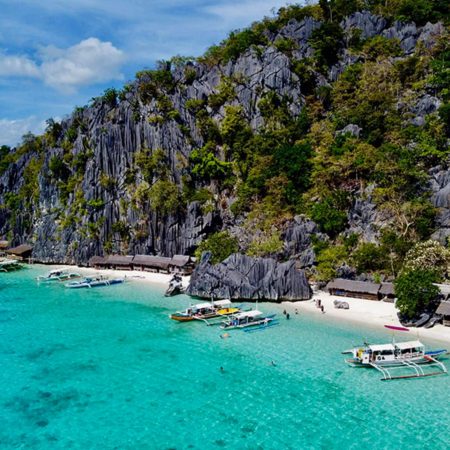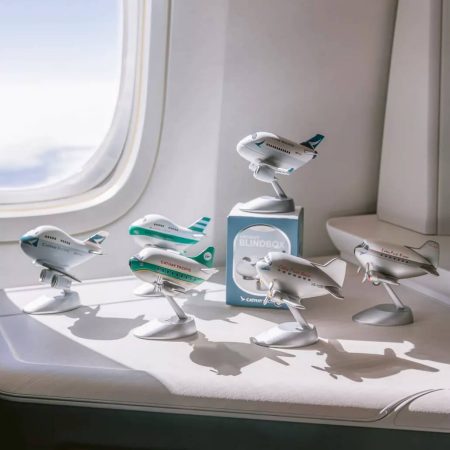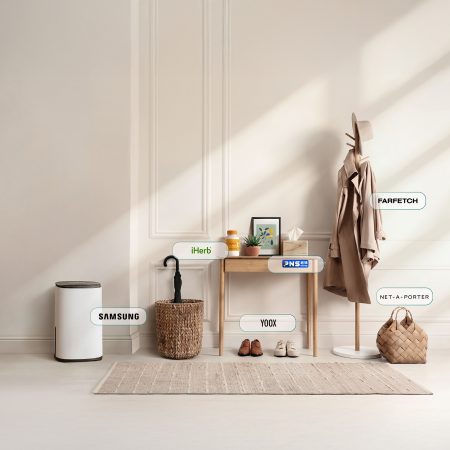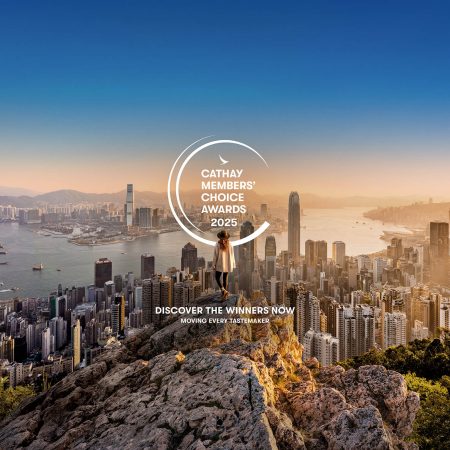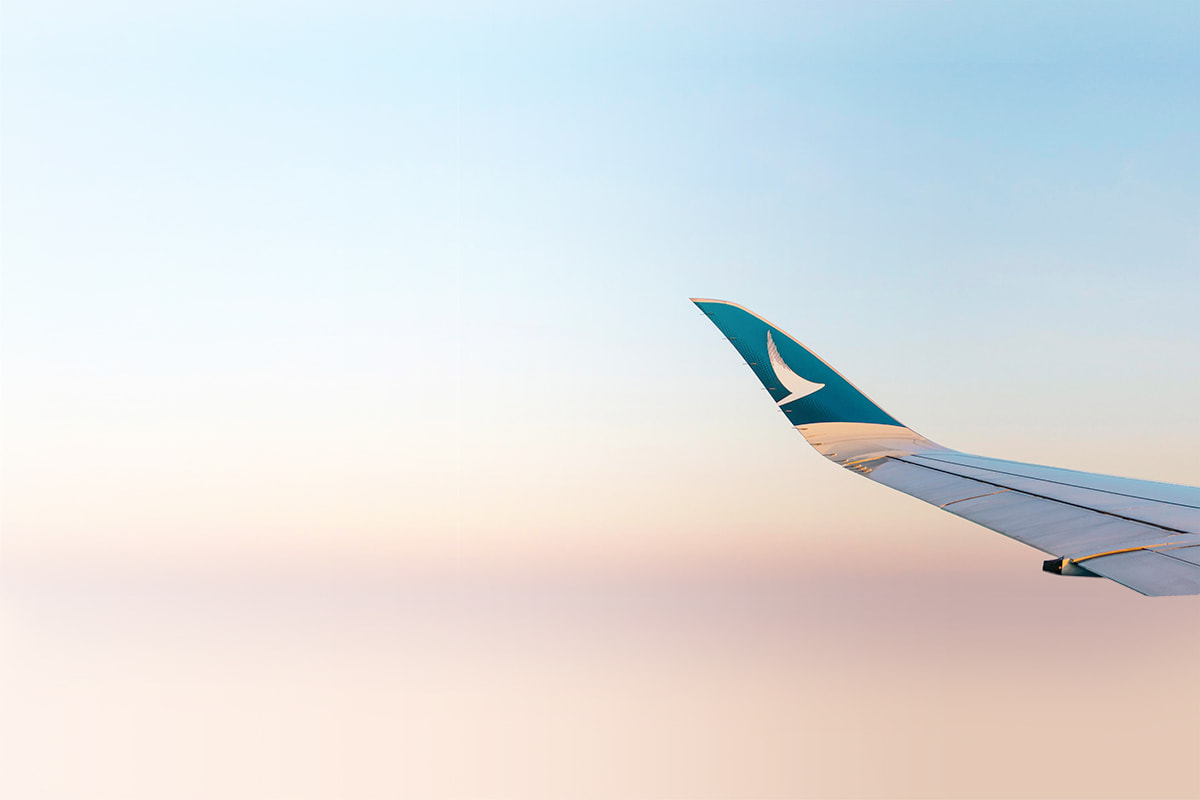The perfect day on the perfect island: 10 fantastical steps
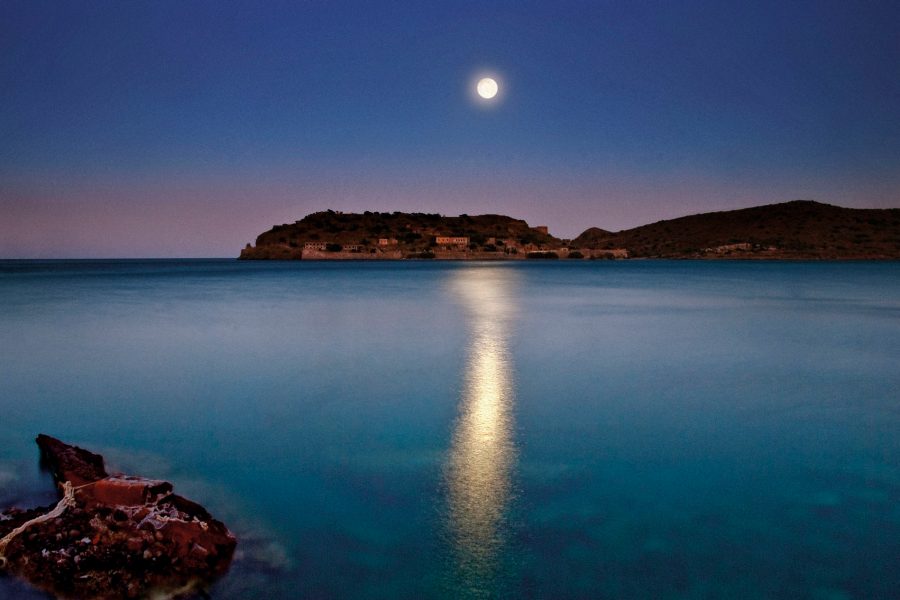
The good times ended in 510 BC. That was the dark year when Sybaris, a fabulously wealthy and hedonistic Greek colony on the instep of Italy’s boot, was razed to the ground by its jealous neighbours. The Sybarites dug canals to transport wine from vineyards to cellars on the coast; now they ran with blood. Over the next couple of centuries, the survivors tried to re-establish Sybaris elsewhere; sadly, all attempts ended in failure.
Sybaris does live on: but in language alone. ‘Sybaritic’ has become a synonym for pleasure-seeking and hedonism, of the joy of travel for its own sake (the Sybarites would stretch a one-day chariot journey to three just for the fun of it).
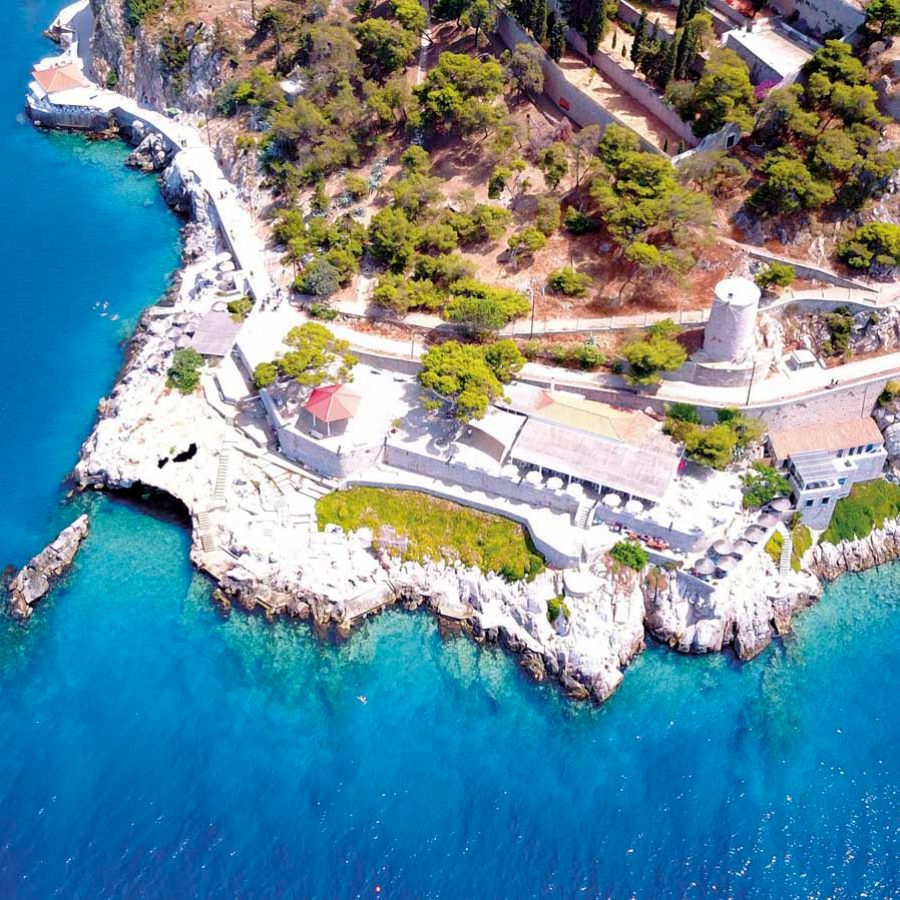
Credit: Fabdrone/iStock by Getty Images
So what if we could build Sybaris again? Here’s what we’ll do. We are going to reinvent Sybaris as the perfect Mediterranean island to protect us from party-pooping neighbours. It will be a utopia that will embrace all the most pleasurable aspects of the Mediterranean’s many islands: sun, sea and sand; food, drink and culture. An idle thought, perhaps, but then idle thinking is a very sybaritic pursuit.
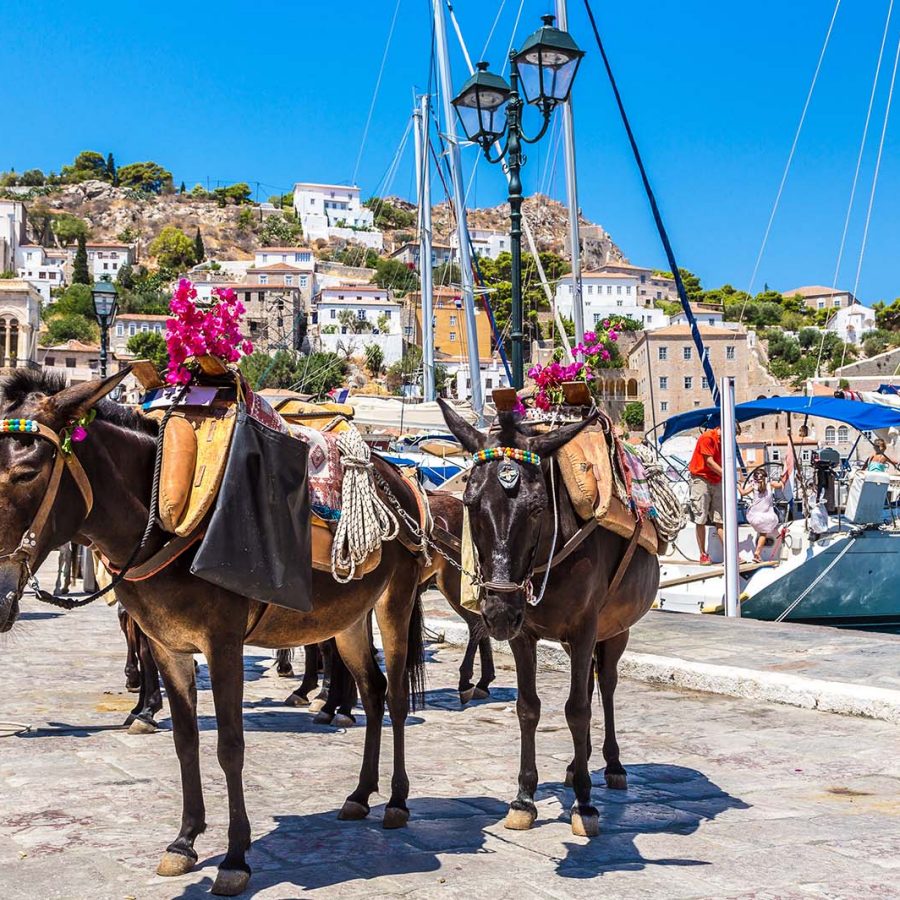
1. Mules instead of cars
My new Sybaris is a patchwork paradise, stitched together from a dozen or so other Mediterranean islands I have visited: large enough to have a volcanic interior on which vines flourish, small enough for stress-free travel; in fact, as on the Greek island of Hydra there are no cars, just a few mules to help with the bags.
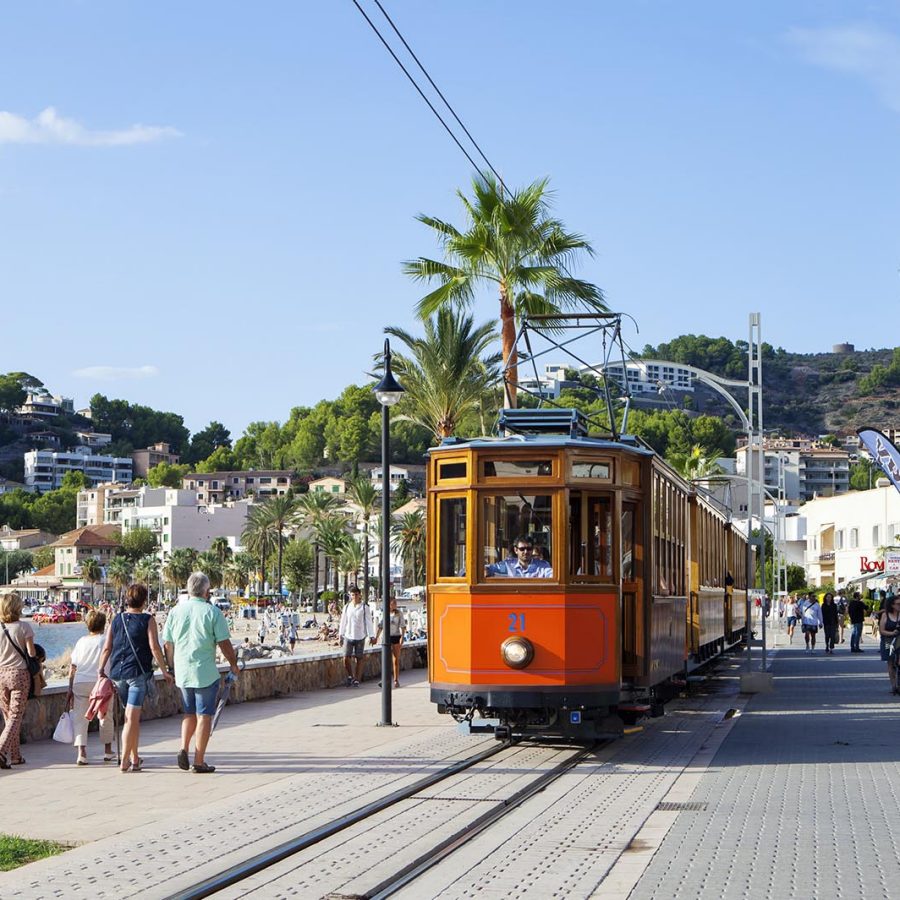
Credit: Magdanatka / Shutterstock
2. Railway and orange groves
There is a railway, though, from the beach up to Sybaris Town. We will borrow the three-foot-gauge ‘Orange Express’ – the Ferrocarril de Sóller – that plies its way between Palma and Soller on Mallorca, Spain. It takes its name from the citrus groves through which it passes: I would have them, too.

3. Lavish breakfast
Fresh orange juice is not all Mallorca can offer for breakfast. I like to have ensaïmada – warm, flaky coils of yeasty, lard-rich bread – spread lavishly with sobrassada, Mallorca’s soft, spicy, paprika-red sausage. And ham – prisuttu and capicollu – from Corsican pigs, a cross-breed of semi-wild pigs and wild boar. Drinking as I mean to go on, I use the finest Sicilian tomatoes, grown in volcanic soil, to rustle up a Bloody Mary before heading to the beach.
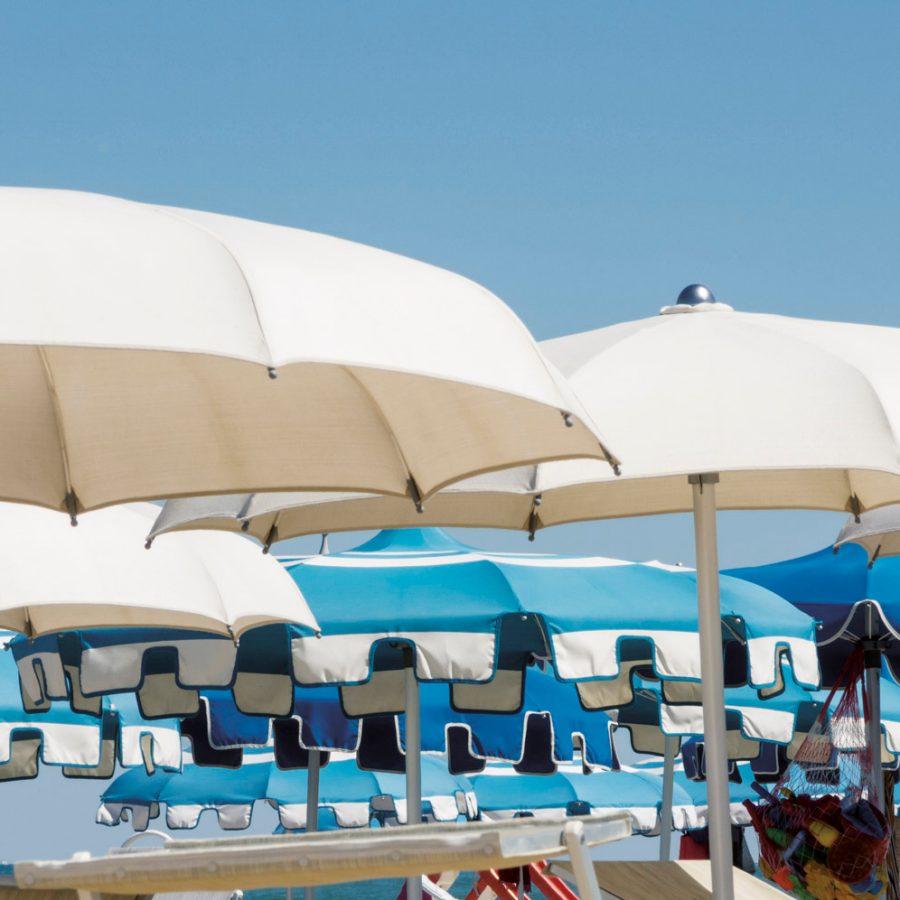
Credit: Mrkit99 / iStock by Getty Images
4. Luxury beach cabana
The beach is S’Abba Druche, to be precise, on the west coast of Sardinia, Italy: a 200-metre-long stretch of fine sand, lapped by waters so clear I can see fish darting among the rocks. After a few minutes of languid backstroke, I retire to my luxury beach cabana, plundered from Nammos Beach, on Mykonos, Greece. It has a plunge pool, a sound system and – joyously – a daybed, a word as much philosophy as upholstery.
Inside the cabana, I have a few snacks to tide me over until lunch: crisp, cracked green olives speckled with coriander seeds, from Cyprus; salted almonds from Greece’s Samos; a bowl of Cretan dakos, made with barley rusk, feta, ripe tomatoes and wild marjoram; and pistachio granita from Da Alfredo on the Aeolian island of Salina, north of Sicily.
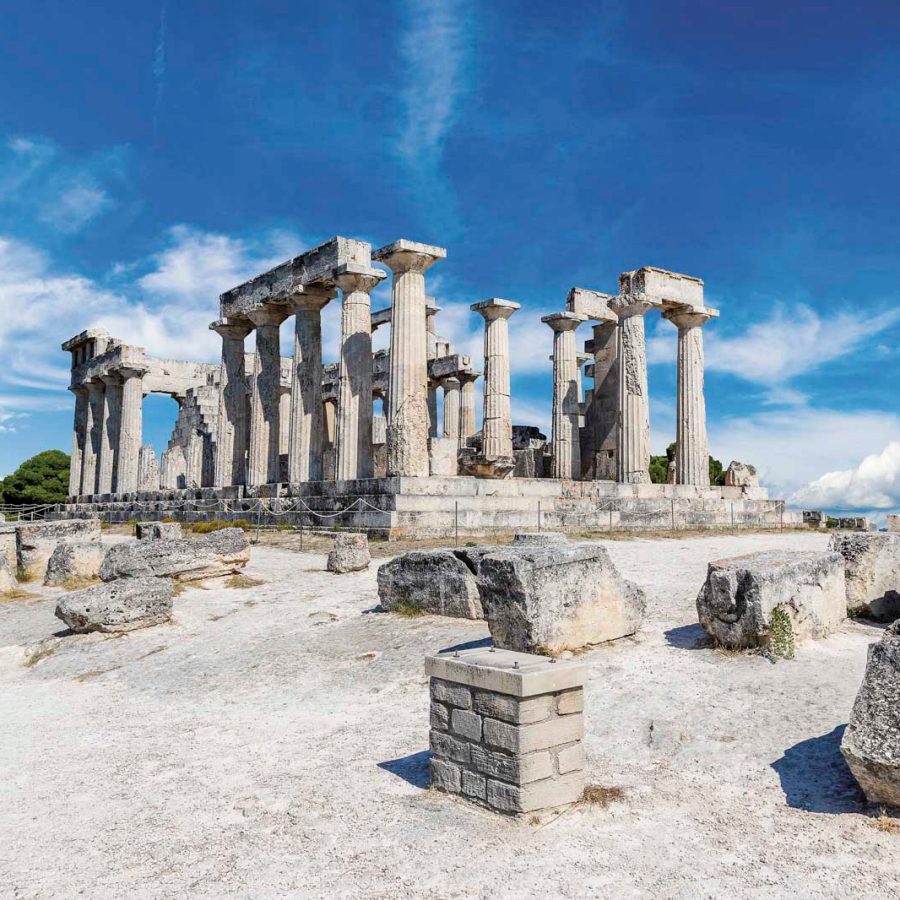
5. Historic hilltop
Fortified, I take the train to Sybaris Old Town, stopping on the way to climb up to the majestic hilltop pillars and pediments of the Temple of Aphaia, on Aegina, Greece, erected just as the original Sybaris was being destroyed, and a favourite subject for the English Romantic painter JMW Turner among others.
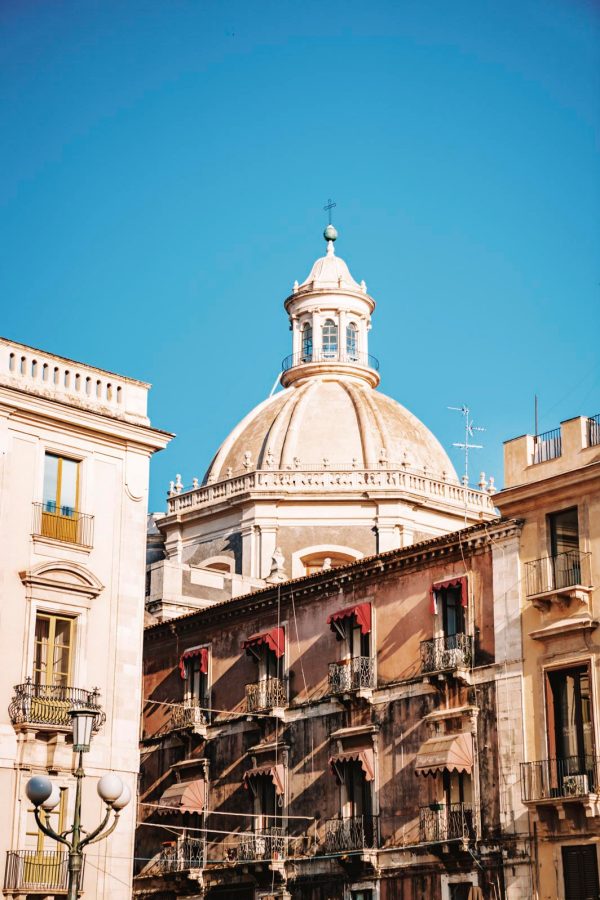

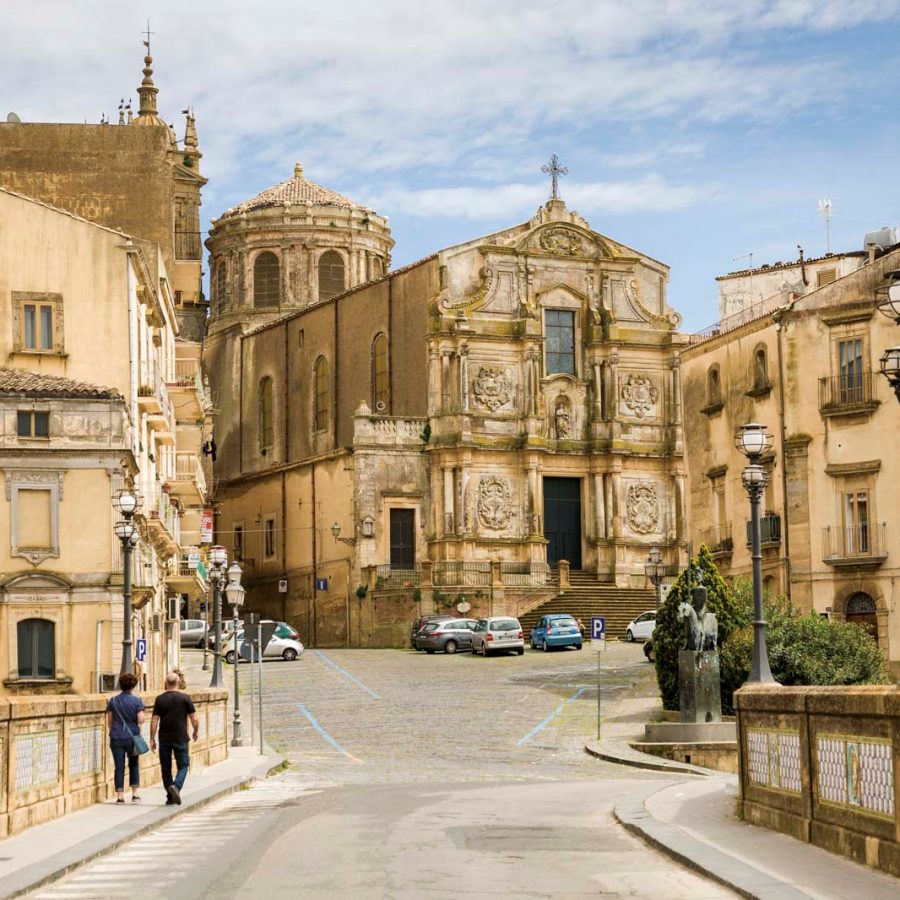
Credit: Imagesef / Shutterstock
6. Old town
Reaching the town, I wander among the belfries and balconies of its flamboyant Sicilian baroque architecture, stopping by a secondhand bookshop to find some reading for the afternoon: Gerald Durrell’s Corfu-set My Family And Other Animals (his big brother Lawrence’s stuff is a tad too weighty for the beach), and a couple of Andrea Camilleri’s Inspector Montalbano books, set on Sicily, as is Tomasi di Lampedusa’s wonderful The Leopard.
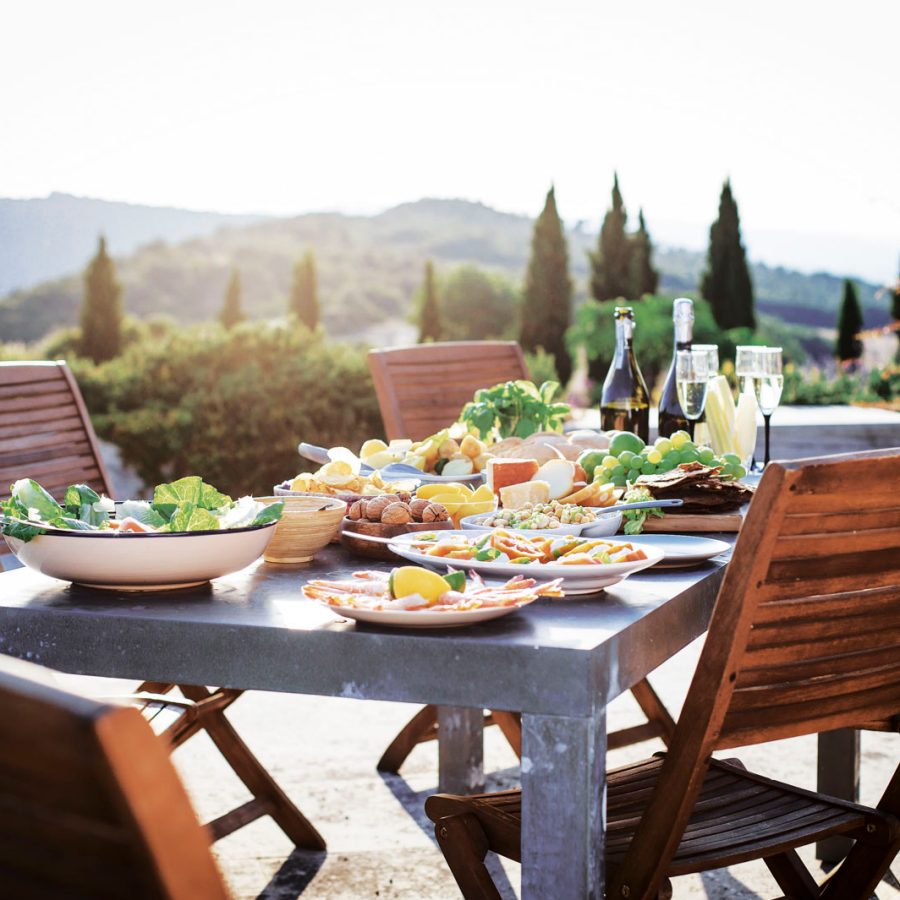
7. Seafood, salad, spaghetti and wine
Commandeering a mule, I ride to lunch on the tiny terrace spirited over from Ostria, near Hydra’s main harbour, where fisherman and cook Stathis and his wife Tassoula, the proprietor, have prepared a sparklingly fresh octopus salad. Miraculously, Tassoula also brings plates of spaghetti with mantis shrimp, from Ristorante Coria in Caltagirone, Sicily; gnudi (dumplings) with ricotta and wild greens, from Konoba Mate on the Croatian island of Korcula; and baked aubergine with feta and basil, from Kazarma , Mykonos. And, by way of refreshment, a chilled bottle of Gaia’s Wild Ferment Assyrtiko, from Santorini, Greece.
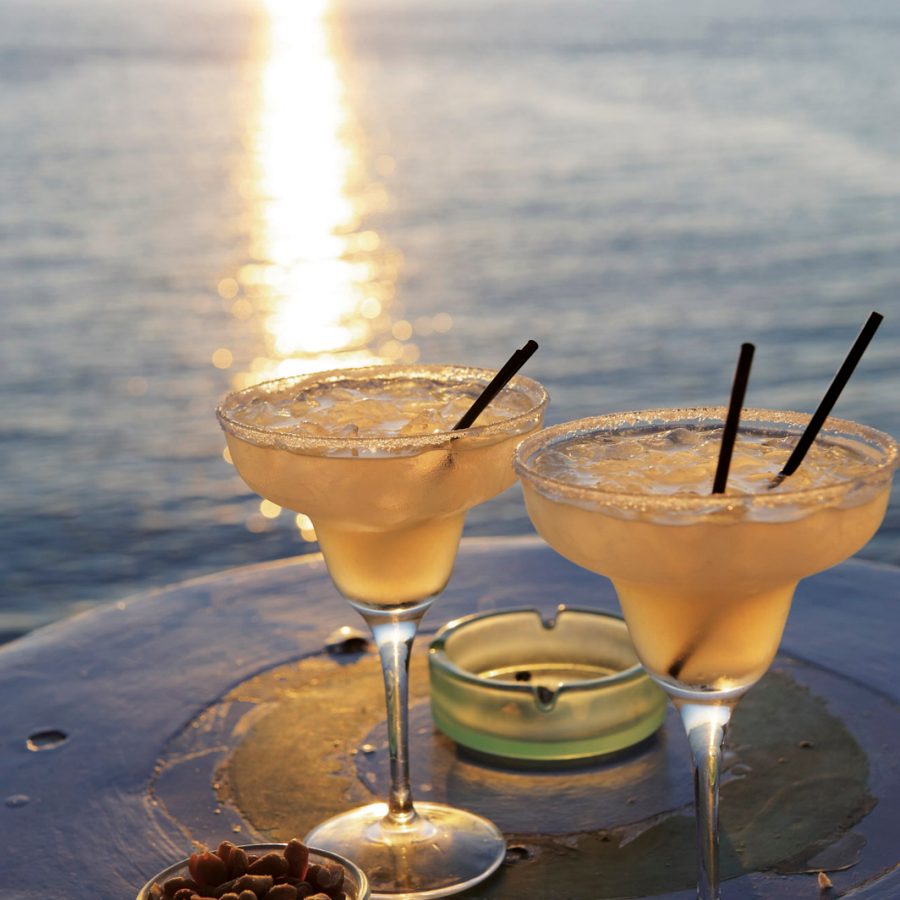
Credit: Michael Amme/laif/IC
8. Cocktails
Back in my beach cabana, Chopin’s preludes are tinkling happily in the background: written on Mallorca, they betray no trace of the miserable winter he endured there with George Sand and her two children in the late 1830s. I make myself a cocktail of Xoriguer gin from Menorca (based on distilled wine, not grain) and Fever Tree’s Mediterranean Tonic, garnish it with a wedge from a lemon plucked through the train window, and settle on my daybed for an afternoon in the company of Messrs Durrell, Camilleri and di Lampedusa.

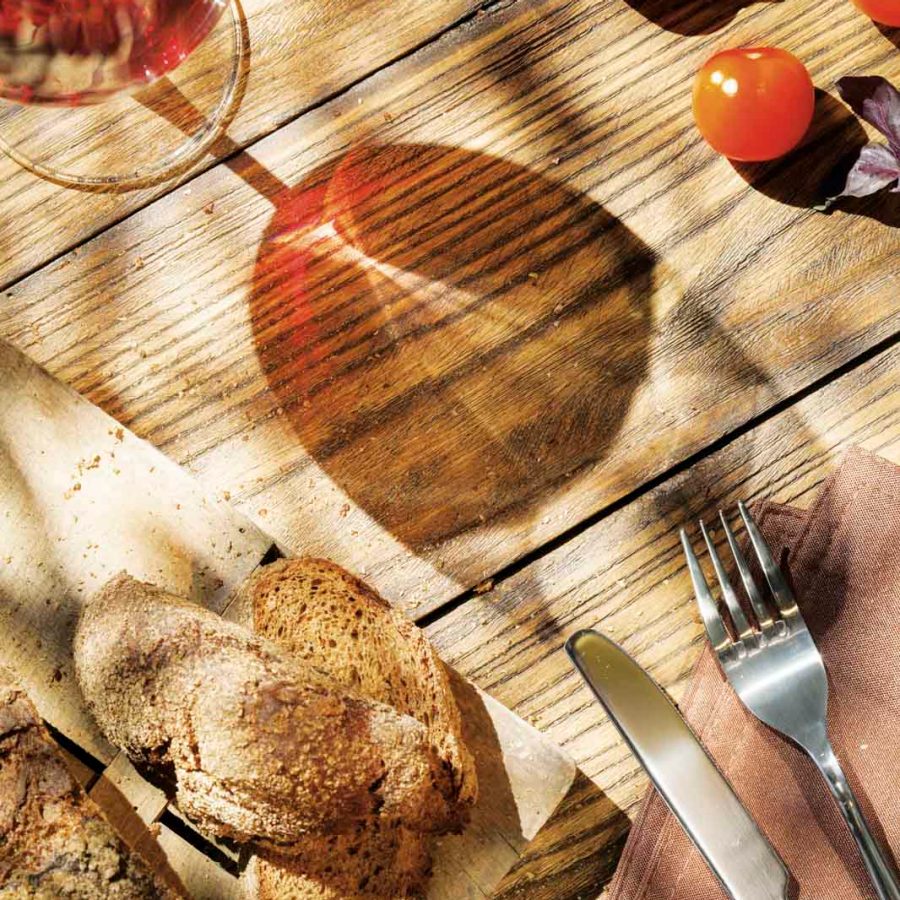
9. Drinks and dinner
Reading about the arancini (stuffed rice balls) cooked by Adelina, Inspector Montalbano’s housekeeper, makes me hungry again; so, after a stroll I clamber aboard my classic Riva Tritone speedboat for the short cruise to the next cove, and install myself on Sybaris’ replica of the glorious terrace at the Lešić Dimitri Palace on Korcula. Then I order a local aperitif: a chilled glass of Bire’s grk (the world’s only disemvowelled grape variety).
Dinner is a simple affair: fabulous linguine with anchovy oil and almonds, and a few crisp slices of pizza, both from It Restaurant on Ibiza; ricciola (a Mediterranean amberjack fish) with cime di rapa (broccoli) from Caesar Augustus hotel, Capri; Lešić Dimitri’s own raw red prawns, garnished with their heads cooked as a fritto misto; and the spit-roast goat I once ate at a wedding on Crete (but without the accompanying gunfire).
Wines are a bright, pure passorosso from Franchetti, made from nerello mascalese on the slopes of Sicily’s Mount Etna; the fruity, savoury àn negra, made from the callet grape in an old dairy on Mallorca; and the honeyed, viscous Nectar 1980, an ambrosial muscat from Samos, with which a few crisp Sicilian cannoli, filled with ricotta and candied fruits, might well be in order.
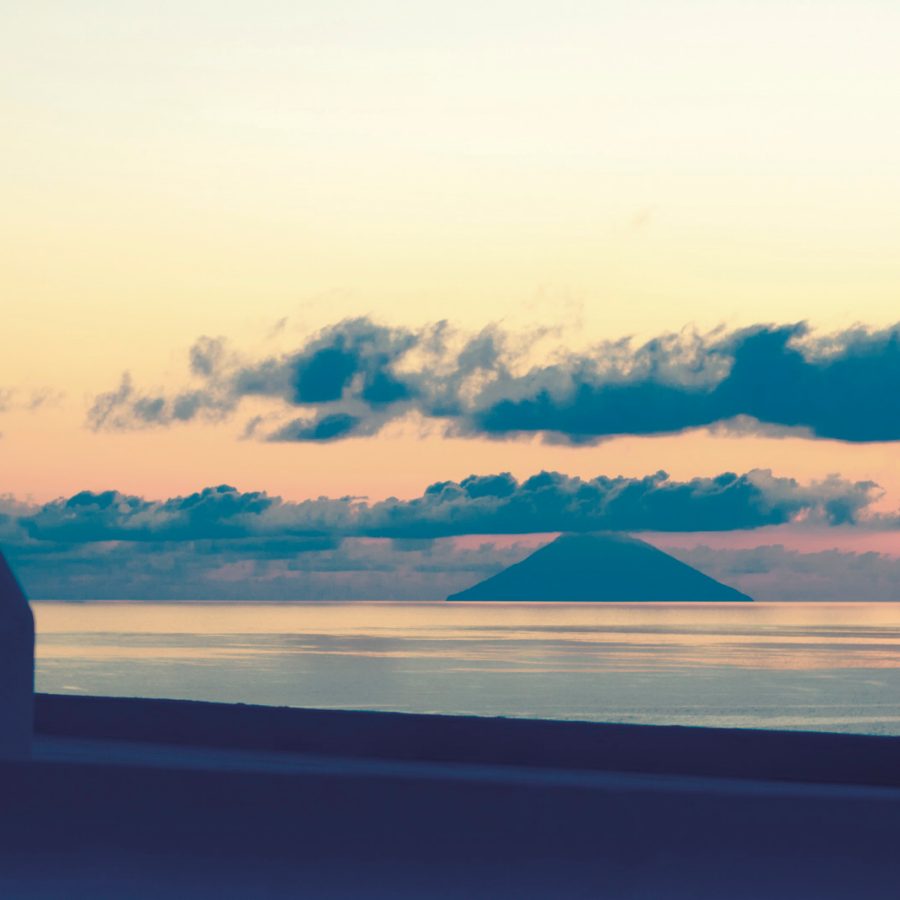
Credit: JannHuizenga / iStock by Getty Images
10. And sleep to music
And so to bed. Smyndirides, perhaps the most decadent of all the Sybarites, apparently suffered blisters even when sleeping on a bed of rose petals: after such a splendidly self-indulgent day, however, I’ll sleep well on an ordinary mattress, especially after a glass of Cretan tsikoudia (a kind of grappa also known as raki). I’ll stay at the beautiful Signum hotel, from Salina, rebuilt stone by stone on my perfect island, lulling myself to sleep with the songs Leonard Cohen wrote on Hydra, with the moon – the Matala moon, from Joni Mitchell’s Carey, set in Crete – rising over Stromboli, across the water, highlighting the faint plumes of smoke drifting from its volcano. Nothing will invade my dreams, and nobody will invade my island.
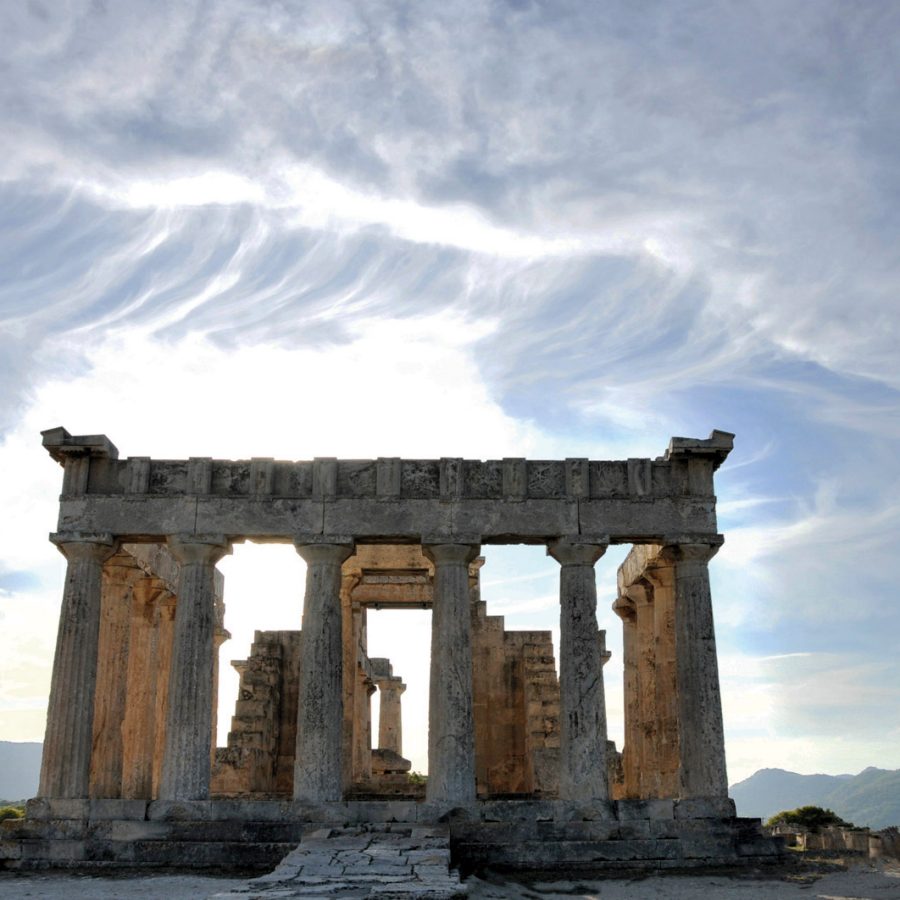
How to get there?
We’ve got bad news for you: you can’t, because New Sybaris doesn’t exist. But you can sample many of its pleasures by flying to Barcelona (for the Spanish Baleriac islands), Rome and Milan (for the Italian and Croatian islands) and beyond for Greece.
More inspiration
- China – the Chinese Mainland, Hong Kong SAR, Macao SAR and Taiwan Region
- Hong Kong SAR - English
- Chinese Mainland (China) - English
- Taiwan, China - English
- 香港特別行政區 - 繁體中文
- 中国內地 - 简体中文
- 中國台灣 - 繁體中文
- Africa
- South Africa - English
- Asia
- Bangladesh - English
- Korea - English
- Singapore - English
- Cambodia - English
- 한국 - 한국어
- Sri Lanka - English
- India - English
- Malaysia - English
- Thailand - English
- Indonesia - English
- Maldives - English
- ประเทศไทย - ภาษาไทย
- Indonesia - Bahasa Indonesia
- Myanmar - English
- Vietnam - English
- Japan - English
- Nepal - English
- Việt Nam - tiếng Việt
- 日本 - 日本語
- Philippines - English
- Australasia
- Australia - English
- New Zealand - English

